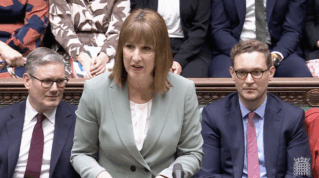“Where’s there’s a will, there’s a way.” How the FE and skills sector has held on to that proverb in the past decade. But as Lord Blunkett and his Labour skills advisers launched their learning and skills report last week, he was upbeat in tone.
He talked about the report’s “practical policies” to tackle immediate challenges – mounting job vacancies, failing apprenticeships, stagnant productivity, decline in investment in skills and in adult learning. He spoke too about the future – the rapid expansion in digital skills and AI, the needs of the NHS and social care, net zero – and was passionate on the central role of skills in economic recovery and “liberating the talents of individuals”.
The standout FE recommendation was “a substantially enhanced role … reinforcing collaboration and a seamless link with higher education, apprenticeships and progression within work”. There was also a pledge to reintroduce education maintenance allowances for 16 to 19-year-olds and support for apprentices in the same age group. Practical stuff to boost learner outcomes and enrolment.
FE would be part of a national skills taskforce with “an integral role to play in local and regional economic growth”. The taskforce would devolve more powers and funding to metro mayors and combined authorities. Such models of local co-operation will be welcomed by a sector wearied by Whitehall micro-management.
This report favours joined-up strategic thinking, not this government ‘s failing short-termism (Kickstart, Restart and skills boot camps). Rather than the barrage of centralised supply contributing to stark falls in apprenticeship starts and a 40 per cent drop-out rate since 2019, the report envisages a system led by local demand. Hence its plan to transform the failing apprenticeship levy into a flexible “apprenticeship and learning levy”.
FE is wearied by Whitehall micro-management
The government needs to get learners to level 3 qualifications to make their lifetime skills guarantee and lifelong learning entitlement (due in 2025) work. Yet with six million adults with no level 2 qualifications, its assaults on BTECs and bonfire of entry-level up to level 2 qualifications risk throttling the pipelines.
The report is clear: funding for LLE needs reinventing. Its plans for individual learning accounts, bursaries and levy contributions will need fleshing out, but they are the right thing to do.
The proposed shake-up in the careers service is crucial. The adult tutoring programme could open up opportunities for learners, FE, as well as the WEA and, I would add, the OU. It should include the self-employed, gig economy workers and co-ops.
The report is scathing on the DfE’s “very limited lifetime skills guarantee for adults”. As a Blackpool MP, I saw constituents ineligible with their obsolete level 3 qualifications. The proposed “right to retrain” – with free courses for level 2 and access to fresh level 3 qualifications – should help end that.
The report analyses disadvantaged groups such as poorer outcomes for BAME apprentices and inequality affecting women and people with disabilities. Other categories will need teasing out, like the seven to eight million without basic skills, 800,000 NEETs and others.
The report’s “partnership and collaboration” section wisely embraces other departments working alongside the DfE, with a proposal for people to study while on benefits a particularly encouraging recommendation.
Boosting digital skills up to level 2, emphasising “enabling skills”, modular learning, learning passports and microcredits – all are pointers to a 21st century lifelong learning vision at last come of age.
The report is multigenerational too. Its other proposals for early years, childcare and school enrichment could spur parents into lifelong learning. Like the female constituent I met three times in the 2000s, who went to a Sure Start centre for help with her children and ended up training as a primary school assistant.
This report shows there’s “a will” and that there are several pathways. Now, it’s up to the sector to engage with its signposts.

















Your thoughts